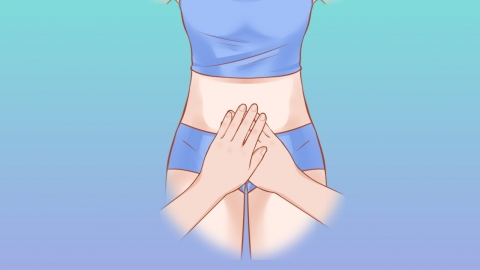What does it mean when pressing on the abdomen causes a sensation of needing to urinate?
Under normal circumstances, the main reasons for feeling urination urgency when pressing on the abdomen include bladder fullness, excessive abdominal pressure, cystitis, overactive bladder, and urethral syndrome. If discomfort occurs, it is recommended to seek timely medical evaluation and treatment at a qualified hospital. Specific explanations are as follows:
1. Bladder Fullness
When too much urine accumulates in the bladder, the bladder wall becomes stretched. Applying pressure to the abdomen directly compresses the bladder, stimulating nerve endings in the bladder wall and triggering the sensation of needing to urinate. Urinate promptly to empty the bladder, and develop a habit of regular urination to avoid holding urine for prolonged periods.

2. Excessive Abdominal Pressure
Excessive force during abdominal pressing can directly affect the bladder and surrounding tissues, stimulating bladder receptors and inducing the urge to urinate. Adjust the pressure applied and avoid pressing too hard on the abdomen. If abdominal examination is needed, it should be performed under the guidance of a healthcare professional.
3. Cystitis (Bladder Infection)
Bacterial infection causes inflammation of the bladder, leading to congestion and swelling of the bladder mucosa. This increases bladder sensitivity, making urination urges more easily triggered by abdominal pressure. Symptoms often include frequent urination and painful urination. Under medical supervision, medications such as levofloxacin tablets, cefuroxime axetil tablets, or nitrofurantoin enteric-coated tablets may be prescribed. Drink plenty of water during treatment to increase urine output and flush the urinary tract.
4. Overactive Bladder
This condition involves involuntary contractions of the detrusor muscle (bladder muscle), resulting in reduced urine storage capacity. Abdominal pressure further stimulates the detrusor muscle, causing urgency, often accompanied by frequent and urgent urination. Under medical guidance, medications such as tolterodine tartrate tablets, solifenacin succinate tablets, or mirabegron extended-release tablets may be used. Pelvic floor muscle exercises can also help improve urinary control in daily life.
5. Urethral Syndrome
Increased sensitivity of the urethral mucosa or dysfunction of related nerves may lead to urination urges when abdominal pressure is applied, as external force is transmitted to the urethra and stimulates its sensory receptors. No clear evidence of bacterial infection is present. Under medical advice, medications such as flavoxate hydrochloride tablets, oxybutynin extended-release tablets, or tolterodine extended-release capsules may be prescribed. Avoid prolonged sitting and maintain cleanliness and dryness around the urethral area.
In daily life, maintain regular urination habits and avoid holding urine; practice good personal hygiene to prevent urinary tract infections; drink adequate water to ensure sufficient daily urine output; avoid wearing overly tight clothing to reduce pressure on the abdomen and urethra; and engage in moderate physical activity to strengthen urinary system function.




